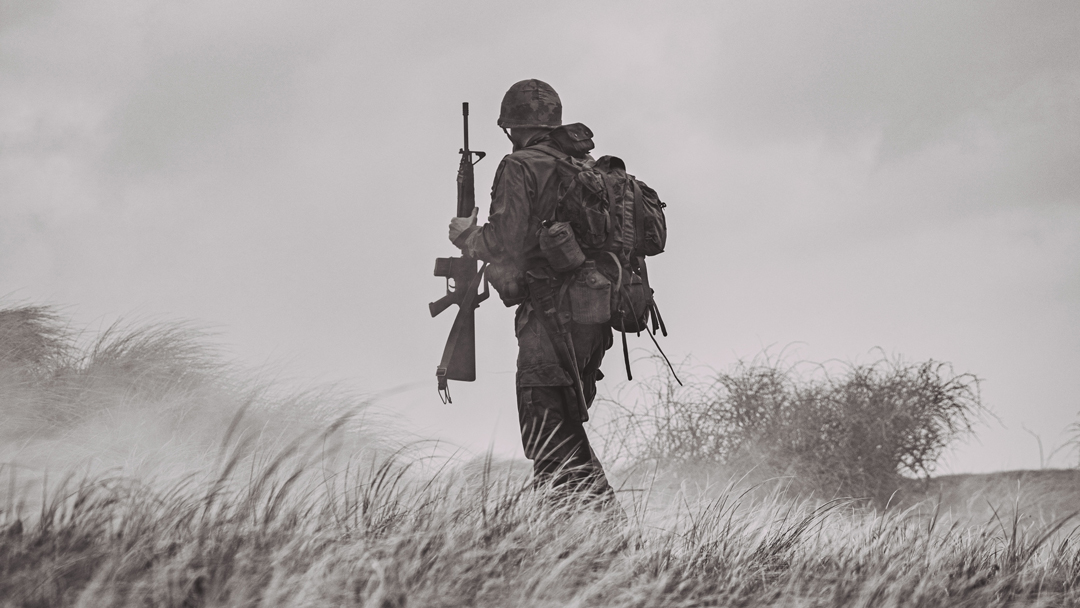Fighting for Our Faith
- Steve Hatter

The Battle of France, also known as the Fall of France, was the German invasion of France and the Low Countries during the Second World War. In May and June of 1940, German armored units made a surprise push through the Ardennes, and then along the Somme valley, cutting off and surrounding the Allied units that had advanced into Belgium to meet the expected German invasion. British, Belgian, and French forces were pushed back to the sea by the German armies. Miraculously, the British evacuated the British Expeditionary Force and French and Belgian troops from Dunkirk in the dramatic Operation Dynamo. Hollywood recently made a movie about this extraordinary moment in history.
Sixty remaining French divisions, along with just two British divisions left in France, made a determined stand on the Somme and Aisne but were soundly defeated by the German combination of air superiority and armored mobility. German tanks outflanked the Maginot Line and pushed deep into France, occupying Paris unopposed on 14 June. After the flight of the French government and the collapse of the French Army, German commanders met with French officials on June 18th to negotiate an end to hostilities. On June 22nd , the Second Armistice at Compiègne was signed by France and Germany. The supposedly neutral Vichy government led by Marshal Philippe Pétain superseded the French Third Republic, and Germany occupied the North Sea and Atlantic coasts of France and their hinterlands. The Vichy regime retained the unoccupied territory in the south of France until November 1942 when the Germans and Italians occupied the zone until the Allied liberation of Europe that began with the D-Day invasion of Normandy in June 1944.
History had judged the Vichy French harshly because they were weak, if not treasonous toward their heritage and countrymen. Vichy, in a sense, has become synonymous with enemy sympathizing to gain personal comfort. They were capitulating in the face of evil. Alternatively, the French Resistance has come to be viewed as courageous, virtuous, and heroic. They fought a guerilla war against all odds, and many suffered greatly and died. They were uncompromising in the face of evil.
You are probably asking, why is Pastor Steve bringing all of this up in his Christmas week blog? Well, we may not be in a shooting war just yet, but make no mistake, we Christians are in as hot of a war against evil in our day as there ever was in history. We face an onslaught of attacks on everything from the truth of Holy Scripture to U.S. Constitutionally guaranteed freedoms. We need to think of our time as one wherein we need to be ever on a war footing—even at Christmastime, or maybe especially at Christmastime. We could face any number of unfortunate scenarios, from a crazed shooter invading our spaces during Sunday worship to being assaulted by angry cybermobs who prove utterly anti-Christ at every turn. We could even find ourselves pushing back on our own city government from gross overreach in the name of keeping us safe in the pandemic. We have a choice as to whether we will be capitulators or warriors for Christ.
The Bible, of course, tells us there is nothing new here. In fact, the New Testament Epistles almost read like current events these days! Take a quick tour with me of the relatively short but pithy Book of Jude, and you will see what I mean.
Jude taught his readers to contend for the Christian faith earnestly. He began with an explanation of the necessity to contend. False teachers had crept into the fellowship of believers, threatening the purity of the Gospel of Jesus Christ: “For certain people have crept in unnoticed who long ago were designated for this condemnation, ungodly people, who pervert the grace of our God into sensuality and deny our only Master and Lord, Jesus Christ” (4).
Jude characterized the Christian’s response to false teachers/teaching as a duty. First, he gave lengthy and vivid descriptions of false teachers and their sure judgment (5–16)—these were people who, among many other negative descriptions, rely on dreams, “defile the flesh, reject authority, and blaspheme the glorious ones” (8).
Next, Jude described the duty of the Christian in the face of these threats (17–23). Believers were exhorted to heed the instruction of the Word (17–19) by first remembering the predictions of the apostles—”in the last time there will be scoffers” (18)—and next, by seeking sound doctrine and Spirit-inspired truth: “but you, beloved, building yourselves up in your most holy faith and praying in the Holy Spirit, keep yourselves in the love of God” (20, 21). Staying in the love of God also meant they were to be merciful towards those impacted by false teaching: “Have mercy on those who doubt; save others by snatching them out of the fire” ( 22, 23). In this way, Jude taught believers to fight for their precious faith.
Christians, we will be judged for our response to the times we find ourselves in. I, for one, do not want to be ashamed before the Lord as a “Vichy capitulator.” I pray to fight the good fight of faith as Paul did, not ashamed of the gospel of Jesus Christ. Pray for strength, for wisdom, for courage, in this moment. Fight for your faith!










